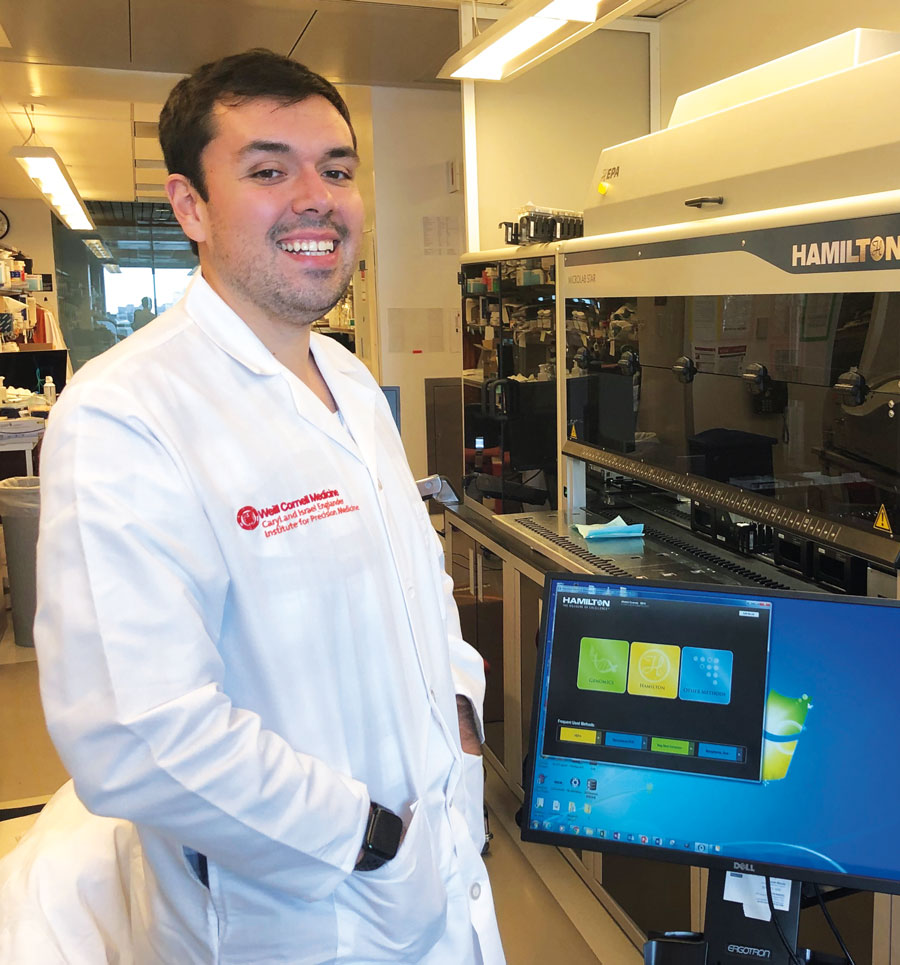When Matt Mosquera ’14 stepped into Charles Kim’s lab as a Bucknell sophomore and told the mechanical engineering professor he wanted to build a robot resembling an octopus’ tentacle, he didn’t know it would lead to a career creating lifesaving drugs.
“I just wanted to do something that hadn’t been done before,” says Mosquera, who recently earned a Ph.D. in mechanical engineering from Cornell University and began work this summer as a research scientist for Teva Pharmaceuticals.
Mosquera is continuing his quest for the new, although he’s shifted his focus to the medical field. He still traces his path back to that first research project in Kim’s lab, through a daisy chain of projects that included work at a Belgian research institute and a senior design project that created an egg embryo injector for the biology department.

As a graduate student at Cornell and the Weill Cornell Medicine campus in New York City, Mosquera developed biomaterials used in nanovaccines — drugs sheathed in polymers that are hunted down by the body’s immune system due to their virus-like size, 1/100 that of a cell.
Mosquera’s work suggests the bioengineered delivery method can make vaccines more effective for patients with metabolic disorders, such as obesity and diabetes, which often hinder the viability of vaccines. Mosquera has also worked on engineering synthetic patient tissues to test drugs and better understand disease progression in cancer, and one drug he studied is being evaluated for its potential to treat prostate cancer.
In his new role he’ll develop bioreactors to manufacture biologic medicines for Teva Pharmaceuticals outside of Philadelphia, where he recently moved with his wife, Kim Rich ’14.
Says Mosquera, “I really like knowing that what I create can help people down the line — that there’s a direct clinical benefit to what I do.”